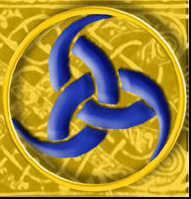
Terms of
Use
Submissions
~ Tips for Poets ~
"The poet is a liar who always speaks the truth."
-- Jean Cocteau
III. Some Good Advice
2. While you write
2.1 Respect Form.
The destination and treasure island of poetry is Beauty. The ship that
carries you there is Form on the waves of Rhythm.
All of them, and more, are necessary for the event.
Neither over- nor underestimate the importance of form.
Master or at least understand a form before you break it.
Have the courage to break the form or your own rules if thereīs no other way to
preserve the beauty of a certain phrase or original expression.
2.2 Be terse.
Donīt use words or details that do not convey meaning or athmosphere, just in order to fill up the meter, or to keep your appointment with an endrhyme. Rephrase and find a different, more meaningful solution. Every word must pull its own weight. Every line must have a function within the poem. No description for its own sake. Be economical - if they fulfill the same function for your purposes, prefer short words over long-syllabled ones ("tired" for "exhausted", "fate" for "destiny"...) ; you can pack more meaning into one line that way.
Terseness is partly a matter of taste, and the language per se. Oriental poetry delighted in flowering, elaborate expressions. Old Norse, during its development as language, lost many weak syllables, so already in itself is comparatively terse. Translate an English text to modern German, and it will automatically gain ca.30% more syllables. Latin-imported words often tend to be longish. Some meters are easier to accomplish in one language than another. Grammar mechanisms, rigidity of syntax and rules for placing the word stress on either word root syllable, or e.g. the last-but-one word syllable, all make a difference.
In addition to "native" words with Germanic and Anglo-Saxon roots, English offers a fair variety of words from Latin, Greek, French etc., often giving you a chance to find an alternative word with different syllable count or differently stressed: "rosary" for "rose garden", "enter" for "come in", "destination" for "goal"...
2.3 Keep your reader in mind.
Poetry, as all language, is about communication. Remember you usually donīt only write for yourself or the Gods, but for other humans as well. You want to be understood, to share your vision and be appreciated, no ;-)?
Reward your reader.
While reading your verses, the reader needs suspense and/or beauty as immediate
rewards to make him want to go on reading from stanza to stanza, and not stop
bored after the first lines. You know how fast we live these days, and how
quickly we surf the net. "Sell" your poem well.
With the title and the first stanza, you have to catch attention. Arouse
curiosity and sympathy. Be original, be unusual. Introduce interesting persons,
bring direct speech early. Donīt lose yourself in winded descriptions of
unimportant details. Build up tension, maintain suspense throughout, give savor
to the climactic stanzas, give the reader a strong and satisfying ending,
allowing him relief (oops, sounds like sex doesnīt it ;-)
Donīt be mystical - express yourself clearly.
Nobody can directly see into someone elseīs brain. How is the reader supposed
to see your vision, to feel what you felt ? He relies on your words to
understand you. And, since in most cases you wonīt be present when he reads it,
your words without mimics and gestics, without the inflection that your voice
would give it, were you to read it aloud to him. And without the chance of you
explaining to him in detail just what tremendous events happened in your life in
the last half year, that colored your poem.
It is not enough to have good intentions and a great idea - you must get them
across as well. Especially if you express some new thought, or something
familiar in a new way. Is your imagery consistent, or do you whizz through a
metaphorical Wal-Mart ? Does the story develop in a logical way ? Can your
intended audience be expected to recognize yor allusions to lore or history, or
are you too esoteric for them?
Expressing yourself clearly does not mean you canīt be subtle, or canīt have a
second level of meaning.